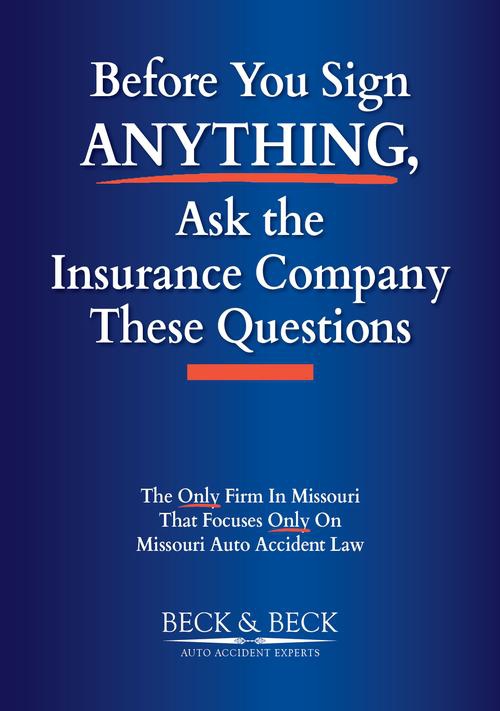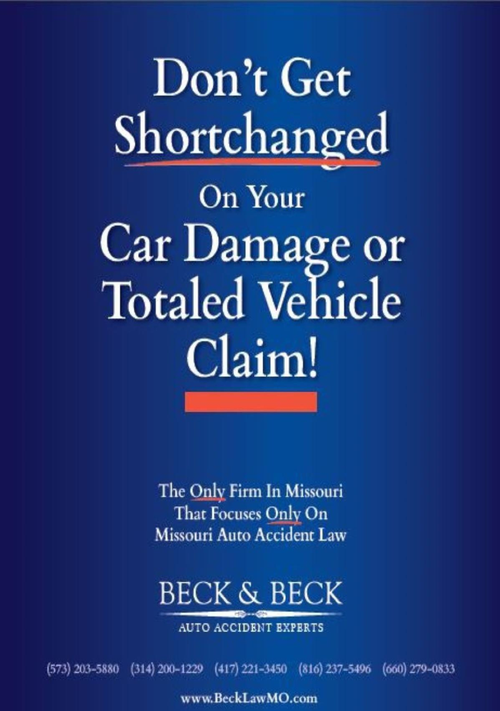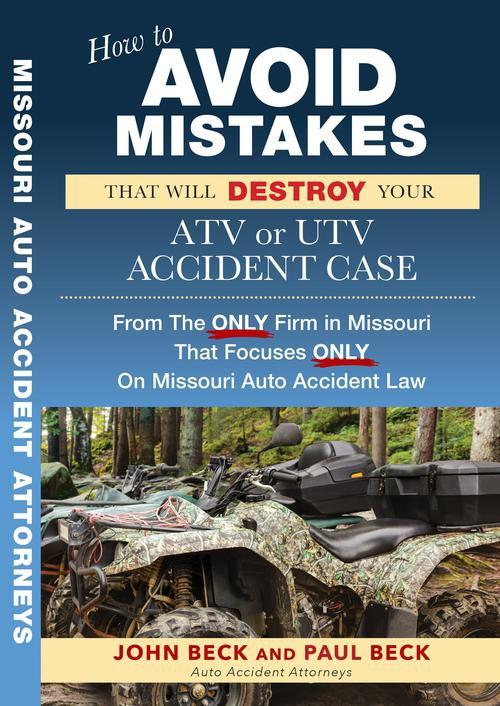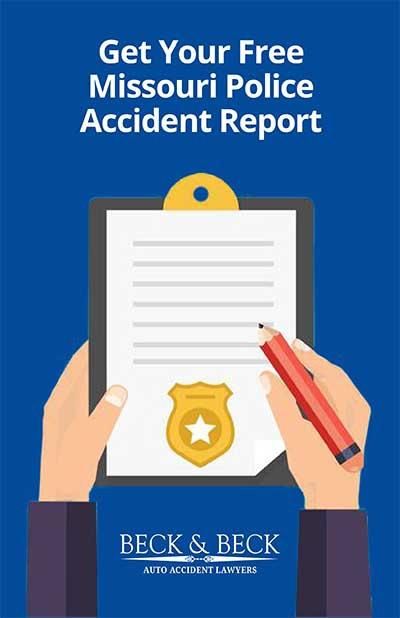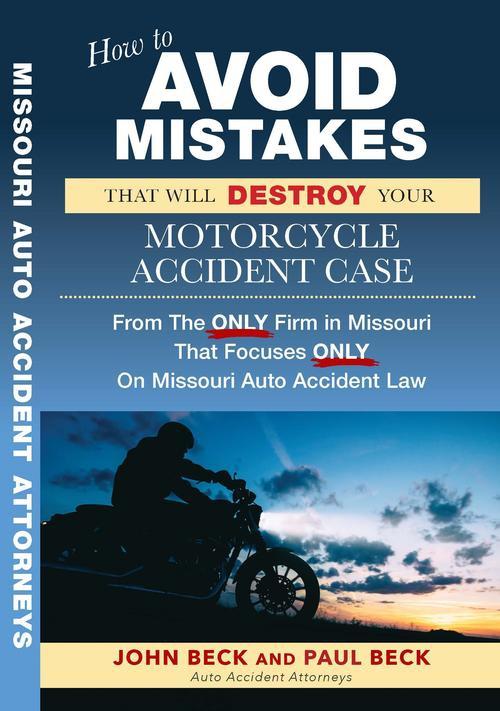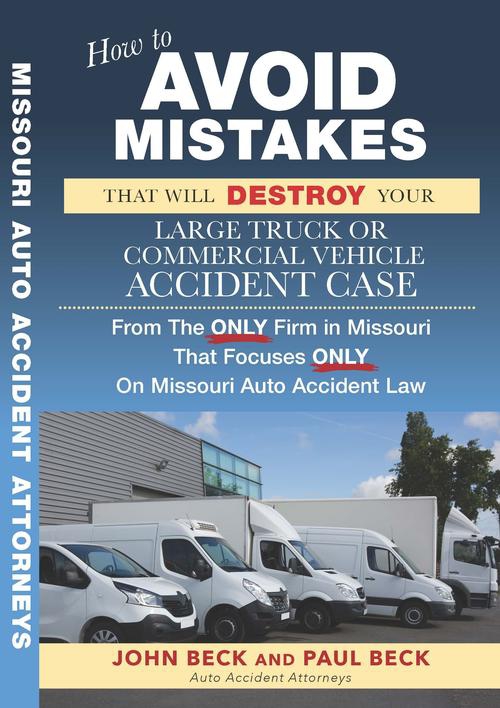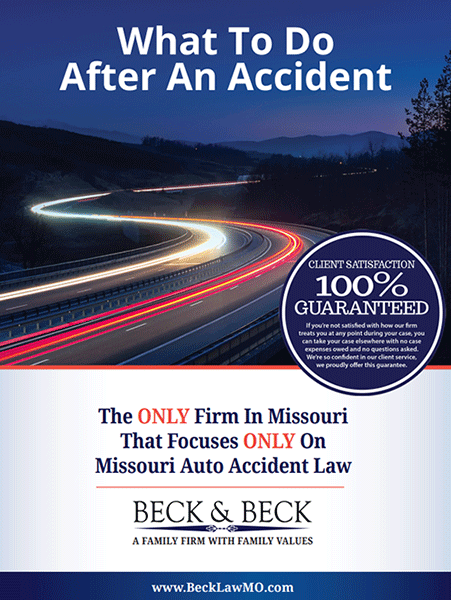In Missouri, most non-injury car accident settlements range from $3,000 to $15,000 for property damage alone, with the average falling between $5,000 and $8,000.
Settlement amounts for non-injury car accidents can vary widely depending on the specifics of the incident, such as the extent of property damage and the details of your insurance coverage.
Property Damage Claims
If you’re in a Missouri car accident where no one is injured, the case usually comes down to a property damage claim that deals with the actual costs from the crash.
Examples of a non-injury accident could be a fender-bender in a parking lot, or a minor rear-end crash where everyone is fine physically, yet the expenses that follow can still be considerable.
Settlements for property damage often pay to fix or replace your vehicle and may also cover things such as towing or the cost of a rental.
In some cases, you can also recover for losses that people don’t always think about, including a drop in the car’s value, damage to items inside the vehicle, or the time you’re left without it, though insurance companies usually want clear records before paying those.
What Factors Affect a No Injury Settlement in Missouri?
Settlement amounts in non-injury car accidents depend on the details of your crash and the property damage it left behind, and since no two accidents are the same, insurance companies review each claim by weighing certain key factors.
Severity of Vehicle Damage and Total Loss
The extent of the damage largely determines your settlement, and insurers often call a car a total loss when repairs come close to or go beyond what the vehicle was valued at before the accident.
When that happens, you’ll usually get its actual cash value after the deductible is taken out, while if repairs are possible, the settlement should cover what it takes to restore the car to its pre-accident condition.
Diminished Value for Repaired Vehicles
Diminished value means the drop in worth between what your vehicle was valued at before the accident and what it is considered worth after it’s been repaired, and the reality is that even quality repairs cannot remove an accident from a vehicle history report.
Missouri law does allow you to pursue diminished value through the at-fault driver’s insurance, and if your claim is successful, the amount you receive can increase, especially when the vehicle is newer and has no record of past accidents.
Rental Car and Loss of Use
If your car is in the shop, you can seek payment for transportation while it’s being fixed, and this usually comes in two ways:
- Rental car coverage: the cost of renting another vehicle during repairs
- Loss of use: a daily amount for the time you are without your car, even if you decide not to rent one
Loss of use is meant to cover the disruption of not having your vehicle, whether you choose a rental or not.
Towing and Storage Fees
Your claim should also cover the cost of towing the car from the scene and keeping it in storage until repairs start, and because these charges add up quickly, it helps to move the vehicle to a shop without delay.
Insurance companies often challenge high storage bills when the owner does not act in time to keep costs down.
Your Percentage of Fault
Missouri follows a pure comparative fault system, which means the money you receive goes down in line with your share of responsibility for the crash. If you’re found 35% at fault, then your payment is reduced by that same percentage.
For instance, when damages add up to $10,000 and you carry 30% of the blame, the amount you’d collect comes out to $7,000 instead of the full figure.
Insurance Policy Limits and Coverage
The at-fault driver’s policy limits also set the ceiling on what you can recover, and in Missouri, the minimum coverage for property damage is $25,000 per accident.
When your losses are higher than the available limits, you may need to turn to your own policy or consider taking legal action against the driver directly in order to cover the gap.
What Can You Claim in a Property Damage Settlement?
A property damage settlement usually goes beyond just fixing your car, since you can also claim reimbursement for the different financial losses tied to the accident.
Repair or Replacement Cost
Your payment will either cover the repairs needed for your vehicle or its actual cash value if it’s declared a total loss, with that value based on its age, mileage, and condition right before the accident. The insurance company decides which option costs less and pays accordingly, whether that’s repair work or a total loss settlement.
Sales Tax, Title, and Registration on a Total Loss
When your car is totaled, Missouri law requires the insurer to handle certain expenses in addition to the vehicle’s value, and these can include:
- Sales tax: On the replacement vehicle’s purchase price
- Title fees: For transferring ownership of a new vehicle
- Registration costs: For licensing your replacement car
These fees can increase the total amount you receive in a total loss settlement.
Personal Property Inside the Vehicle
The at-fault driver’s coverage also applies to personal items damaged inside your car during the accident, such as phones, tablets, work tools, prescription glasses, or clothing, and it’s best to document those belongings with photos and receipts whenever possible so your claim is supported.
Child Seats and Safety Equipment
Car seat manufacturers recommend replacing child seats after any accident, even minor ones, and most insurance companies will cover that cost. You should also remember to include other safety equipment such as helmets or car seat bases that were inside the vehicle, since those items can be claimed as well.
Aftermarket vs OEM Parts in Repairs
You have the right to request Original Equipment Manufacturer (OEM) parts for repairs, particularly if your vehicle is newer, because OEM parts are produced by the manufacturer and match the original specifications exactly.
While insurers often push for less expensive aftermarket parts, you can still insist on OEM parts whenever the difference in quality could affect your car’s safety or resale value.
How Do Insurance and Fault Work in Missouri Property Damage Claims?
Missouri follows an at-fault system, which means the driver responsible for the accident must cover the damages, and this setup gives you more than one option for handling your claim.
Third-Party Claim vs. Your Collision Coverage
You usually have two choices for handling the claim, since you can either go through the at-fault driver’s insurance with a third-party claim or use your own collision coverage under a first-party claim.
When you file with the other driver’s insurer, you don’t have to pay a deductible, although the process can drag on if there’s a fight over fault, while turning to your own coverage tends to move faster but means paying your deductible upfront.
Uninsured and Underinsured Property Damage Options
Uninsured Motorist Property Damage (UMPD) coverage helps if the at-fault driver either has no insurance or not enough to cover your losses, and while it’s optional in Missouri, some policies require you to pay a deductible before it applies.
This type of coverage steps in when the other driver cannot pay for your damages, which means you aren’t forced to cover the costs yourself.
Deductibles and Subrogation
When you rely on your collision coverage, your insurer will usually try to recover the payout from the at-fault driver’s company through a process called subrogation, and that essentially means they pursue repayment in your place.
If your company manages to recover the funds, they’ll then return your deductible.
Time Limits for Property Damage Claims in Missouri
You have up to five years from the accident date to file a property damage lawsuit in Missouri, but insurance carriers usually expect notice much sooner, often within 30 to 60 days. What this means, is if you delay, your claim could be in jeopardy.
This is why it’s best to report an accident right away even when the damage appears small.
How Do You Maximize a No Injury Settlement?
Taking the right steps after an accident can make a big difference in what you recover, since careful documentation along with smart choices often add thousands of dollars to the final settlement.
Document the Scene and Get Multiple Estimates
Thorough documentation helps strengthen your claim while also heading off disputes later. This is why you should take photos of all vehicle damage from several angles, get a police report even when the crash seems minor.
You should also gather at least two repair estimates from trusted shops. Take special care to keep detailed receipts for everything tied to the accident, including towing, storage, and rental car charges.
Ask for Loss of Use Even If You Didn’t Rent
Many people overlook loss of use, yet you can still claim it even when you didn’t rent a replacement. The value is figured by multiplying the number of days your car stayed in the shop by the daily rental rate for a similar vehicle.
Because of that, this often-forgotten claim can add several hundred dollars to your payout.
Make a Diminished Value Demand with Proof
A diminished value claim works best when backed by solid proof. So make sure to get a professional appraisal or use sales data comparing cars with and without accident histories. Focus on vehicles less than five years old with clean records, since those usually bring the strongest claims.
Control Storage and Tow Costs Early
You can keep costs down by moving your vehicle from pricey tow yards to repair shops as quickly as possible, because insurance companies only cover reasonable charges and may refuse to pay extra if you don’t act fast, which means prompt action helps avoid needless fights over storage fees.
Don’t Sign a Global Release Too Soon
You should never sign one until you’re sure nobody was injured, since serious injuries sometimes show up days or even weeks later, and by signing too quickly you could lose the chance to seek further compensation if new injuries appear.
Need Help With a Missouri Property Damage Claim?
At Beck & Beck Missouri Car Accident Lawyers, we’ve spent more than 35 years working only on Missouri auto accident cases, which means we know how to measure the true value of a property damage claim and whether an insurer’s offer is short of fair.
Our skilled Missouri auto accident law firm handles property damage matters along with injury claims. Because of our long-standing relationships with adjusters, our team is able to push for fair results without unnecessary holdups, while also giving clients clear guidance at no cost.
With decades of focused experience, we understand Missouri’s insurance system inside and out, and we stay committed to helping clients resolve property damage claims fairly.
If you’re dealing with a difficult insurer or feel like your claim is being undervalued, we’re ready to step in and protect your rights.
Cities in Missouri where our attorneys have assisted clients includes St. Louis, Springfield, Jefferson City, Kansas City, O’Fallon, Independence, Florissant, Doniphan, Joplin, Columbia, and more.
Related Articles
What evidence will help strengthen my Missouri car accident claim?
Am I required to report a car accident to the police in Missouri?

